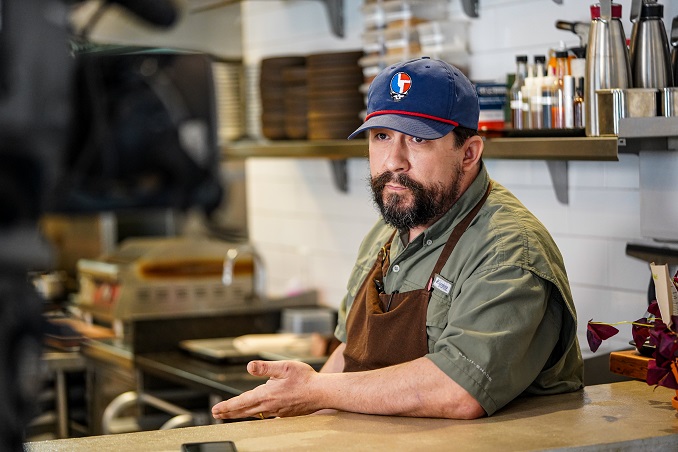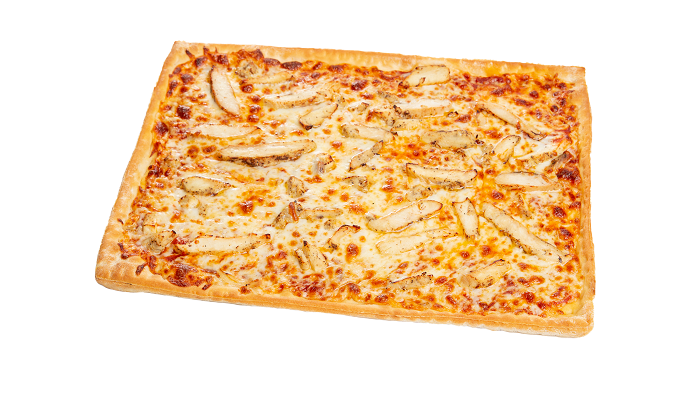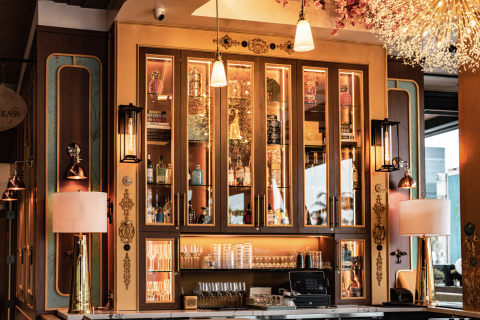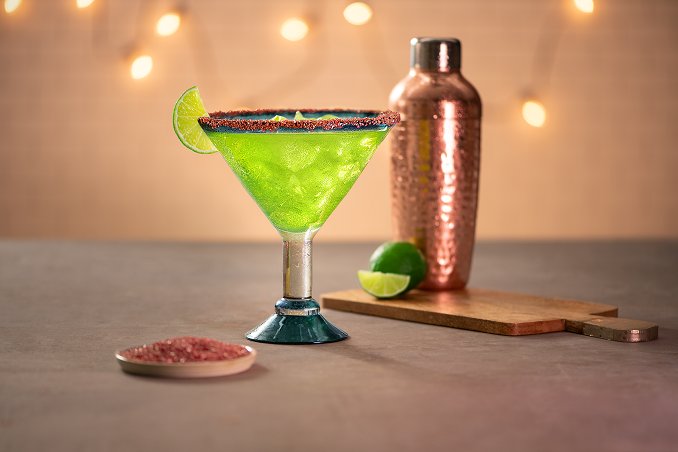Randy Rucker arrives at River Twice eight hours before dinner service, immediately heading downstairs to inspect the restaurant’s walk-in. He, along with his sous chef and right-hand man, Kevin McWilliams, inspect all of the meat, fish and produce as they store it for what it could be used in that night’s menu, or for dishes which very well may be served months or even a year or more later. At this truly unique restaurant, Rucker and McWilliams focus on an evolving menu which changes from night to night, week to week, as their philosophy of utilization feeds their creativity and allows them to make menu changes when needed.
“In my world, you have to really get into your product,” he says. “You have to smell it. You have to taste it. You have to get all up in it. How is it today? Is it different from yesterday? Has it fermented a little more than it had yesterday? Is it ready to go?”
“Fresh isn’t always best,” he exclaims, as he breaks down what can be done with certain foods as they age.
“When aging beef, flavor profiles increase. Textures change. Foods need to breathe. You have to allow it to become what it can be. People talk about catching and eating fresh fish, but sometimes it’s an organ from a tuna that was caught six months ago that will taste the best. Food has its ‘ready meter.’ It tells you when it’s ready. With our steelhead trout (sourced from Green-Walk Trout Hatchery in Bangor, PA), we don’t do anything special at all except age it. We hang it for 12-14 days. Water is then able to evaporate and the concentration of flavor happens. Enzymes break down. This process makes it easier to work with. Fermentation creates flavors, while aging allows flavors to come naturally. It brings the magical elements that nature provides. Mother Nature will do it for you if you just get the hell out of the way.”
Randy Rucker’s resume speaks for itself. After attending culinary school at Johnson & Wales, he manned the kitchen at a number of Texas restaurants, earning James Beard nominations for his work at Bootsie’s in Tomball, as well as the Rainbow Lodge in Houston. After spending time in Martha’s Vineyard and other parts of New England, Rucker, along with his wife, Amanda, opened River Twice in Philadelphia’s Passyunk Square in October of 2019, where they were met with immediate high praise. River Twice is known for serving modern American cuisine, but most nights, you may not know what to call it. There are Japanese touches to so many dishes, including hand rolls filled with fresh uni. There’s a southern flare, speaking to how Rucker grew up and where he cut his teeth in the restaurant industry. If you ate at River Twice once a month for a full year, you’ll likely consume more than 50 completely different dishes.
But it was more than just culinary school that led Rucker to where he is now. He learned preservation techniques from his mother and dug into the ground as a kid. He credits his peers with teaching him more cooking processes than he could ever learn in culinary school. “The more people know about things, the better we all are” he said.
His philosophy and approach to sourcing and cooking has helped Rucker to utilize food in ways most people wouldn’t even know to be possible. He smokes and breaks down country ham and turns it into XO sauce, which can be used as gravy on his bread dumplings or pork chops, for instance. Rather than throwing out fish scales, he uses them to clarify stocks. River Twice also cures, smokes and dries scallop abductors to use in their country ham XO. They cure their own ham, bacon, guanciale, and other forms of charcuterie. They save the roe stacks from fish and cure them to make forms of bottarga. They utilize old gnarly aged cheese rings to culture fresh cream to churn into butter. They dry age ducks, as well as whole primal cuts of beef. They utilize fluke and tuna bones for dashi after smoking and drying.
“The country ham XO is a prime example of what we do. All the products used in it are sourced locally. The sauce itself is fundamentally rooted in Chinese tradition but by using ingredients from the Mid-Atlantic it becomes something new. Utilization is the key to success in the kitchen. And patience is a culinary virtue.”
“This menu started years ago,” Rucker said, glancing at the menu he served the previous day. “We make everything so that it’s uniquely ours. We don’t have recipes, we have formulas. We work backwards. We source first, and figure it out later.”
The word ‘later’ might mean six months or a year down the road. And for those who have the pleasure of enjoying Rucker’s food, they will probably agree — fresh is definitely not always best.
River Twice, located at 1601 E. Passyunk Ave, highlights local, pristine ingredients and produce-driven dishes on their constantly changing menu. Learn more by visiting http://rivertwicerestaurant.com.








